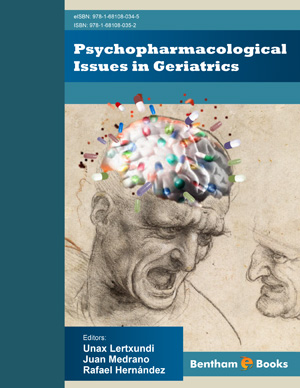Abstract
Mood stabilizers are those drugs used to treat and prevent acute episodes of bipolar disorder. The concept includes a host of agents: lithium, several anticonvulsants, and antipsychotics, notably, second-generation compounds. This chapter reviews the different drugs labelled as mood stabilizers and where available introduces some considerations on their use in old age. Given the lack of controlled trials enrolling elderly bipolar patients, most information derives from application to geriatric patients’ characteristics of those data obtained in studies with other age groups, and also from decades of clinical experience, especially with lithium.
Keywords: Antidepressants, Aripiprazole, Bipolar disorder, Carbamazepine, Divalproex, First generation antipsychotics, Gabapentin, Haloperidol, Hypothyroidism, Johnson syndrome, Lamotrigine, Levetiracetam, Lithium, Lyell syndrome, Mood Stabilizer, Olanzapine, Oxcarbazepine, Quetiapine, Renal impairment, Risperidone, Second generation antipsychotics, Stevens, Topiramate, Valproate, Valproic acid.






















